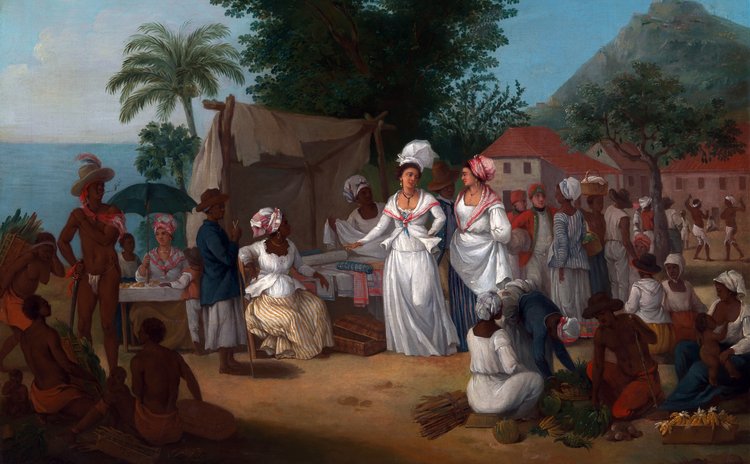On Emancipation Day let us begin to liberate ourselves from chains of party political slavery

When Dominicans observe Emancipation Day on August Monday, that is August 6th 2018, they will mark the day that slaves were emancipated with a public holiday but no event of any significance that will be held will remind us of emancipation.
In fact the programme that the Cultural Division released last week for Emancipation 2018 contains few elements specifically aimed at helping Dominicans reflect on the meaning of emancipation.
So few nationals will care enough about emancipation to spare a thought about the day when that brutal political and economic system was made illegal.
Even the issue of whether we have been emancipated at all has been challenged by many historians. Dr. William Riviere, our local historian, who has been writing about the subject for many decades has suggested that there could be three phases of emancipation: "If examined within the framework of our total historical experience, the emancipation of 1838 will be seen to be for us merely the first of at least three major emancipations, the second of which was the gaining of universal adult suffrage and the official recognition of trade unions in the period 1945-1951 and, the third, the acquisition of constitutional independence in 1978."
As black people around the world observe emancipation 2018, a few Dominicans will contemplate the mental and economic state of black people in Dominica nearly 200 years after slavery was abolished on August 1st 1834. But, make no mistake, the effects of slavery are still alive and well in Dominica; its residues are permanently imbedded in our thoughts, words and action especially in the political and economic dimension of our society. It is obvious that mental slavery has not been abolished.
Nevertheless each and all of us must try to break these chains by our own actions. As Bob Marley, the legendary Jamaican Reggae singer reminds us in his "Redemption Song" we must "emancipate ourselves from mental slavery, because while others might free the body, none but ourselves can free the mind".
Another great Jamaican, Marcus Mosiah Garvey, called for a new "Negro Spirit": for the building of a common experience of black people as the foundation of a strong and healthy nation. Garvey believed strongly that if black people are to emancipate themselves from mental slavery, they must establish a new sense of self and engage in a critical transformation of the mind.
As we stated in an editorial a few years ago Rex Nettleford, the late Caribbean intellectual, said Garvey has challenged black Caribbean people to smash the old stereotype, to substitute self esteem for self contempt, to put self confidence and self reliance in the place of dependence and self distrust. In other words "break the chains of mental slavery".
Even economic freedom has eluded us for than 200 years after slavery. And although we obtained political independence from Britain, our former slave masters, on 3rd November 1978, the struggle for economic emancipation has only just begun. It is a painful fact that it may be much more difficult to obtain the status of economic emancipation than to break off the chains of slavery.
In fact, many persons are of the view that instead of moving forward on the road to freedom we have indeed taken a few steps backward. They recall the period of the Seventies, during the black power movement, when black people worldwide struggled earnestly to become psychologically free.
But now black Dominicans have retrogressed significantly. That movement backwards is obvious. Just look at the level of self-hatred that we display every day. Black, it seems, is no longer beautiful. Black Jamaicans, in particular, are still bleach their skins; black women everywhere wear Caucasian hair in the form of wigs and extensions because they believe black hair is "bad hair".
Additionally, Dominicans must emancipate themselves from the political system that has virtually enslaved them.
Writing in an article entitled "Politics and mental slavery" in the Jamaica Gleaner of a few years ago, Peter Espeut, a sociologist and Roman Catholic deacon suggested that "A mental slave is someone who suspends his intellectual faculties and subjugates himself to the will and beliefs and attitudes of another person or group.
Espeut added: "Mental slavery is the inability to view events, or one's self, objectively. A mental slave will not apply his brain to evaluate what he is being told, to discover what is true and rational; mental slaves are in the habit of accepting and believing what is told to them, whether it makes sense or not. Often, the mental slave does not even stop to ask himself whether what is being said makes sense or not; what is important is that my side said it."
In that article, Espeut was describing the political system that the PNP and JLP had created in Jamaica but the views that he expressed are absolutely applicable to the political system in Dominica upheld by the Dominica Labour Party (DLP) and the United Workers Party (UWP).
Undoubtedly, there are mental slaves in both parties. Some people have gone as far to suggest that if one party puts up as a candidate a black dog or a monkey, their supporters will vote for him or her because manifestos and political arguments will be lost on these reactionary, unthinking, robotic party slaves.
On Emancipation Day 2018, therefore, we should evaluate the methods that our government and our people are willing to utilize to erase the current dependency syndrome that is a carry-over from the days of slavery.
In other words, the struggle for true emancipation may not be attained in our lifetime but our generation must continue the struggle for true liberation one block at a time.




